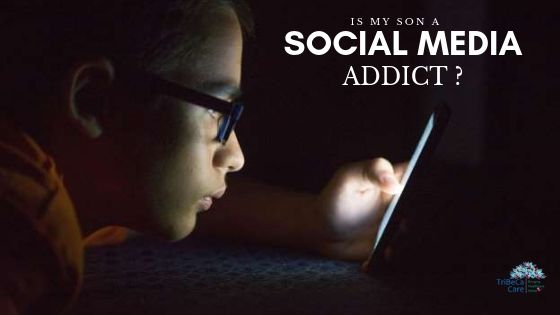“They can live without their parents but they can’t imagine living without their phone for a second”- mother of a class XI boy narrated what she has to go through everyday to deal with her son’s social media addiction.
The truth is in front of us. There’s no way we can deny it but to learn to handle it in the most logical way possible. Around 92% of all children between the age of 13 to 17 years are online daily. More than 30% of them have internet access on their mobile. And 24% of all teens say they are online constantly while 71% of teens use more than one social media site.With influence of online games like PUBG and others increasing, the threat is now even higher.
Considering above said practical data, daily interactive pattern of generation Y, we are here to know the handling strategies. It is important to note that knowledge and awareness is necessary not to apply them on others, its essential to apply them for our own benefit too.
Signs of social media addiction
- Forgets about time assessment when online.
- Compromises with working hours and sleep for being online for longer hours.
- Becomes irritated and throws tantrums if and when being interrupted.
- Very active on social media.
- Prefers to spend time alone with phone rather than socialize.
- Crosses time limit that have been set for internet usage.
- Loses interest in activities that were enjoyable before he/she had online access.
Social media affects development of child
Just like drugs or alcohol, internet offers children and adolescence a way to escape painful feelings or troubling situations. Social media addiction has serious effects on the mental and emotional health of addicts, leaving them lonely, anxious and depressed.
Children who lack rewarding or nurturing relationships or who suffer from poor social and coping skills are at greater risk of developing social media addiction. They feel alone, alienated and have problems with making new friends, they turn to invisible strangers in online chat rooms looking for the attention, companionship and recognition, which they miss in their real lives. They may come from the families with significant problems and they cope with those problems by spending time online. At this formative period of all round development, social medial plays the role of a dominant factor in acquiring emotional, social, moral, intellectual as well as physical developmental skills. We cannot deny the development of sexual concepts are greatly shaped by internet and social media exposure.
Moreover, internet is hurting their ability to work in group, talk freely, writing skills, time management, identification and managing emotions, understanding other’s emotions, evaluating and assessing relationships, value judgement, direct activity, and physical fitness.
Get a hold of your child’s behaviour and help him engage in outdoor activities before its too late.
If you need further help or advice, give us a call. TriBeCa Care is happy to be by your side. Request a callback or Call us at + 913366064208.
Email us at enquiry@newwpsite.tribecacare.com

